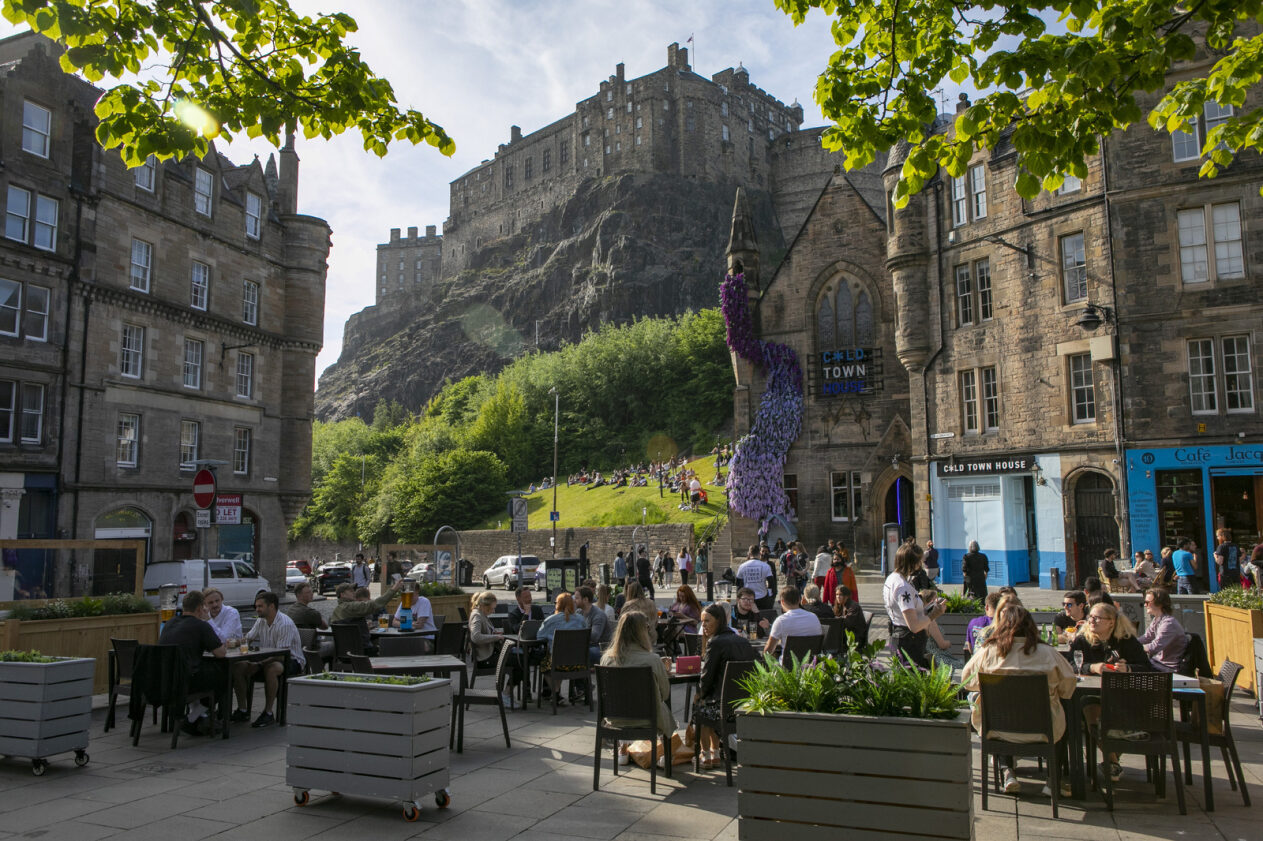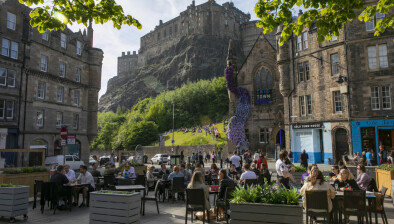Airbnb: Edinburgh’s short-term let rules one year on

One year after the City of Edinburgh Council began implementing Scotland’s short-term let rules, Airbnb says its new analysis shows the licensing scheme has failed to have any impact on the affordable housing crisis in Edinburgh.
Since 2022, Edinburgh has taken an extremely stringent approach to short-term rental rules in Scotland. While advocates said Edinburgh’s measures were necessary to address housing and tourism challenges, analysis shows that since the rules were implemented, rents and hotel prices have increased almost twice as much in the capital as in the rest of Scotland. At the same time: before Edinburgh’s measures were introduced house prices were falling, but they have since increased; fewer guests are visiting Edinburgh; and many households and self-catering businesses have lost vital income. Airbnb is therefore calling on the Council to take steps to ease the requirements through key changes to the licence fees and length, as well as planning guidelines.
Experts have already said there is no evidence of listings on Airbnb having any impact on house prices in Scotland. Recent research from EY also found entire homes listed on Airbnb for 90 nights or more a year represent less than 0.17% of UK housing stock, with house price increases mostly being driven by other factors such as inflation and a lack of housebuilding.
Here are the findings of Airbnb’s analysis, one year on:
Record-high rents
Restrictions on short-term lets have failed to improve the city’s rental market. Despite a 22% reduction in the number of self-catering rentals in Edinburgh qualifying for non-domestic rates since 2019, rents have soared 13.9% in the last year alone to a record high average of £1376 in September 2024, according to ONS data. This is almost twice the increase seen in the rest of Scotland (7.6% ) over the same period.
House prices rising again
The average house price in Edinburgh, which was falling as of September 2023, is now increasing again. House prices in Edinburgh have increased by 6.5% since this time last year, which is higher and faster than in the rest of Scotland.
Record-high hotel prices
The average hotel price in Edinburgh rose to a record high over the last year, increasing by 11.5%, which is almost double the national average increase of 5.7%, according to data from CoStar.
Cultural events are less affordable for many
The number of Airbnb guests visiting during the 2024 Edinburgh Fringe Festival dropped 13% compared to the previous year, and guests who booked on Airbnb reduced the length of their stay by almost 20% as reduced supply caused price increases across all accommodations this summer – including hotels. Press reports have highlighted how limited accommodation options hit artists and performers.
Loss of tourism spending
97% of hosts in Edinburgh recommend nearby shops and restaurants to their guests. With a reduced number of festival attendees choosing to stay overnight or for shorter periods, the evening spending that supports local businesses is at risk. The everyday families who host will also feel the effects; a fifth of hosts on Airbnb in Edinburgh work in healthcare, education, or hospitality. Almost 80% of hosts also use the extra income to keep up with heightened living costs, and nearly half rely on the money to help afford their homes.
A study by BiGGAR Economics in October 2024 has shown that in 2023, the total economic impact generated by short-term letting in the City of Edinburgh was £154 million GVA, supporting 5,580 jobs. This suggests that decreasing the number of short-term lets in Edinburgh by just 0.5% could cost the city’s overall economy £57 million.
Edinburgh should ease its restrictive application of Scotland’s short-term let licensing rules
Airbnb has this month responded to the City of Edinburgh Council’s consultation on their implementation of the licensing scheme, highlighting several issues. Firstly, Edinburgh charges the highest fees in Scotland for these licences. A licence for a property that can host six guests in Edinburgh costs five times more for one year, than a licence for the same size of property in Glasgow or the Highlands, which lasts for three years. Unlike other local authorities, Edinburgh only grants licences for secondary letting for one year at a time. This is highly restrictive, and creates great uncertainty as well as significant bureaucracy and higher costs for hosts. We believe Edinburgh should lower its fees and align the licence duration more closely with other local authorities in Scotland.
An analysis by the Association of Scotland’s Self-Caterers also points to the majority of applications for planning permission for secondary short-term lets being rejected in Edinburgh, with a higher refusal rate than in other parts of Scotland. We therefore recommend that the Council should work on a more proportionate planning policy for short-term lets in the capital.
These recommendations will do more to help enable everyday people provide affordable stays, support local businesses and ultimately benefit from visitors to Edinburgh.










